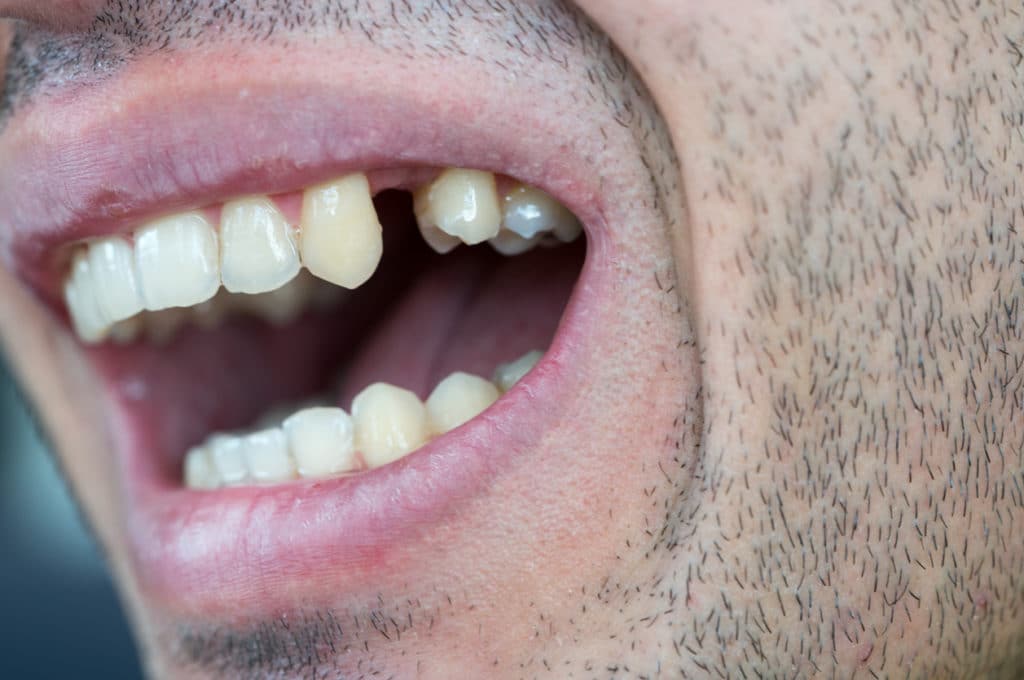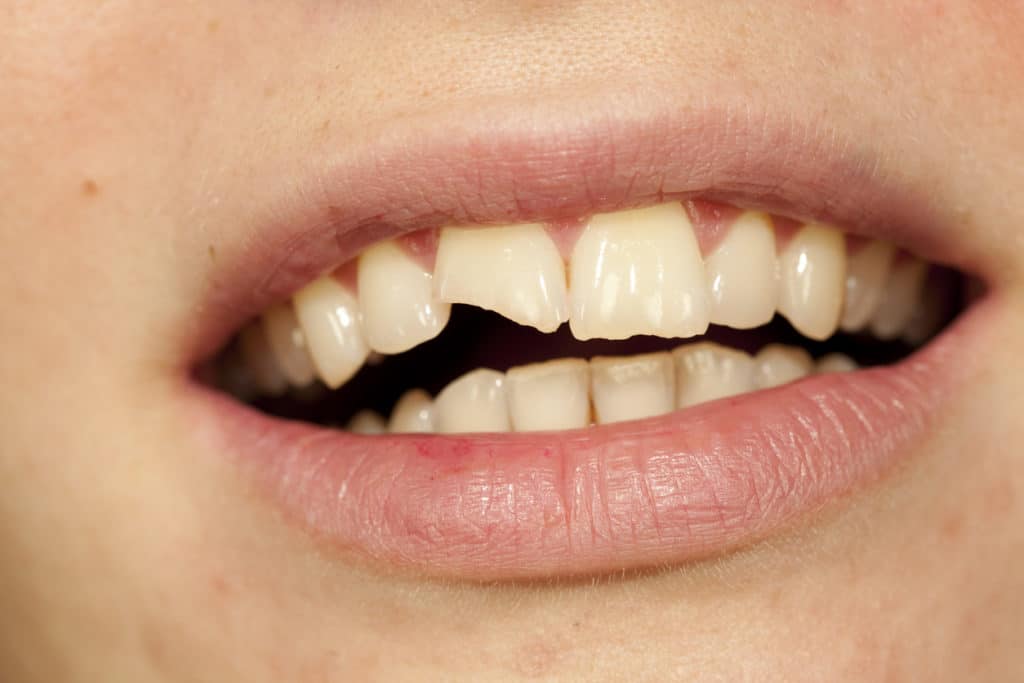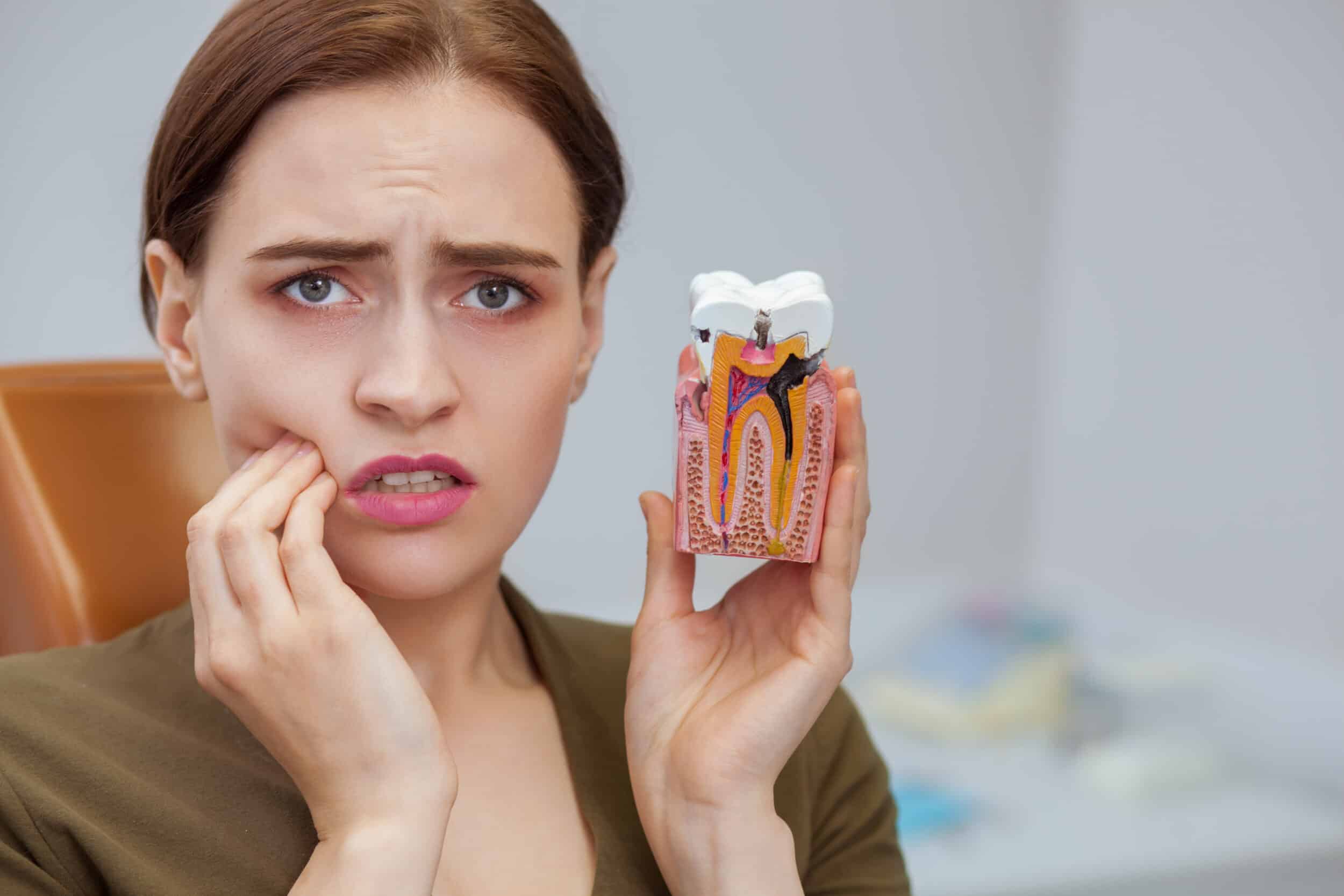We realize that dental emergencies can’t always wait, and we can most likely get you in the same day. As an emergency dentist serving Edison, Metuchen & South Plainfield, NJ, we provide many services and have evening and Saturday hours to accommodate the needs of many patients.
At Gentle Dental Care, we realize that you don’t have to be a hockey player to experience a dental emergency. Don’t ignore injuries to your teeth. Most likely, the situation will only worsen with time and in some cases, it can require hospitalization if not treated promptly. Located on Oak Tree Road we are convenient to many adjacent towns including Metuchen, South Plainfield, Colonia, Iselin, Scotch Plains and others.
Emergency Dentist Services
– Extractions including wisdom teeth
– Root canal therapy
– Bonding and Crowns to restore broken teeth and repair broken dentures or partial dentures
*These are just some of the procedures we perform as an emergency dentist

How Do I Make An Appointment If I Have A Dental Emergency?
Unlike most dental practices, Gentle Dental Care, LLC has extended hours that could really come into play if you knock out a tooth or have another condition that would require an emergency dentist. We have office hours until 9 p.m. on Monday and Tuesday, until 8:00 p.m. on Wednesday. We are also open from 8:00 a.m. to 3:00 p.m. on Saturday.
Still, like a plumbing issue or a furnace that goes out at 2:15 a.m. on Sunday night during a blizzard, dental emergencies don’t always conform to office hours. At Gentle Dental Cares we usually have an emergency dentist on call. If you have a problem, call us immediately at 732.549.5660 and you will be get back to you as soon as we are able to do so.
This isn’t an idle promise. At Gentle Dental Care we take your dental emergencies very seriously. In most cases, we are able to see you the same day, or almost always no later than the next day.
What Is Considered a Dental Emergency?
A dental emergency is a dental injury that requires immediate attention and intervention. Some of the most common dental emergencies include:
- Chipped or broken teeth.
- Dental abscesses.
- Knocked-out teeth.
- Sudden swelling or bleeding related to infection.
When Should I Treat Something As A Dental Emergency That Needs Immediate Attention?
There is no set of criteria that make a dental emergency. Issues like a knocked out tooth demand immediate intervention to hopefully try and save the tooth. The same is true if you break off a tooth when eating something because the tooth is now open to infection.
Issues of tooth pain may or may not require emergency assistance. If your gums have developed an abscess, this can create severe pain and we should take a look as soon as possible. Other tooth pain may pass. If in doubt, give us a call and we’ll discuss your situation.
What Should I Do if I Have a Dental Emergency?
The first thing you need to do is remain calm. If the dental emergency is a direct result of an injury, determine whether you need to call an ambulance for medical treatment. If not, there are certain steps you can take:
- Contact your dentist immediately. Tell them what happened, and let them know you believe you have a dental emergency.
- If your tooth was knocked out, gently rinse it under cool water and try to put it back in the socket. If unsuccessful, place the tooth in a cup of milk.
- If you are bleeding, apply pressure with a clean cloth or piece of gauze. Keep it in place until you arrive at the dentist.
See What Our Patients Are Saying!
“Dear Dr. Strober and staff at Gentle dental, Thank you for taking care of my tooth emergency the day before my vacation. We’re having a wonderful time in Crested Butte, Co. Best regards,” – Bill T. 9-14-04
To read more patient testimonials, please click here!
Learn More About What To Do If Faced With The Following Dental Emergencies:
Knocked Out Tooth »

Find the tooth and handle it gently. When a tooth is knocked out the ligament attached is destroyed. For the tooth to survive, the tooth needs all the tiny nerve fibers to remain attached. So, pick up the tooth by the crown (the visible portion above the root). Don’t touch the root. Gently wide off any excess dirt from the tooth and rinse it off in warm water. Rinse your mouth, as well. Now place the tooth back into the socket, making sure it is in the right direction. If the tooth won’t stay in place, put it in your mouth between your cheek and gums. This sounds odd, but bathing the tooth in saliva will help keep it alive.
If it’s not possible to keep the tooth in your mouth, store it in cold, whole milk. We also have a cell-cultured solution that will help keep the tooth alive for a longer period.
Chipped Or Broken Tooth »

If your tooth breaks in half, this is also an emergency. The pulp of the tooth is now exposed and open to bacteria and infection. If infection enters the broken tooth, it will need a root canal or possible extraction if left unattended. Find the piece or pieces of the broken tooth. Rinse the tooth pieces and your mouth with warm water.
You’ll probably have some bleeding, so take a piece of gauze and place it over the spot and gently bite down to create some pressure to stop the bleeding. A cold compress applied to the cheek will help with pain and swelling.
Unlike knocked out full teeth, broken teeth cannot be put back together. However, we still want to see the tooth piece or pieces, if possible. If the chipped area isn’t that large, we may be able to place a filling or apply dental bonding. A porcelain veneer can mask a chip, as well. For more extensive fractures, placing a crown over the tooth is more likely.
Lost Tooth Fillings Or Crowns »
If a filling comes out or a dental crown comes loose, these usually are not emergencies that need immediate assistance. We do want to see you during the next day’s office hours, however. In both of these instances, decay is probably the cause. With fillings, new decay likely has developed between the old filling and the tooth. With crowns, decay may have formed under the crown on the remainder of the natural tooth.

A missing filling opens the tooth to invading bacteria. To cover the hole, you can place a piece of sugarless gum into the tooth. Do not use regular gum, as the sugar will cause pain. You can also fill the hole with dental cement that can be found in the dental section of the pharmacy. If there is any pain, you can mitigate it by applying clove oil with a cotton swab to the area with the missing filling.
If a crown comes loose or falls off, find the crown and clean the inside. You can place it back onto the tooth, if possible. This will protect what remains of the natural tooth. Place dental cement on the inside of the crown and put it back on the tooth. If you can’t find dental cement, denture adhesive can be used. Do not use household glues, as they are not safe for your mouth, and they may damage your tooth and the crown.
When we see you, we’ll remove the new decay and place a new filling. If the tooth with the crown has new decay, we’ll need to remove that and prepare the tooth for the crown again. We will likely need to make adjustments to the crown.
Toothache »

A toothache can come on suddenly and create quite a distraction, precluding sleep and the ability to focus. If the pain is severe, this qualifies as a dental emergency. Severe pain could be a symptom of an abscess or a tooth needing a root canal.
The first step is to alleviate the immediate pain. Start by thoroughly rinsing your mouth with warm water. The goal is to first make sure your mouth is clean. Floss your teeth gently to remove any lodged food debris that could be stuck and placing pressure on a tooth. Over-the-counter pain medication can alleviate the pain. If the pain doesn’t subside, make an appointment to see us.
Objects Between Teeth »
When an object becomes lodged between your teeth, this may or may not be an emergency. With small pieces of food, such as popcorn hulls, try using dental floss and the tip of your toothbrush to dislodge the item. You can’t leave pieces of food under the gums as this will lead to gum irritation and possible infection. A toothpick can also be used to gently move under the gumline and remove the debris. Be careful not to push it deeper, however.
Do not use a pin, knife tip, or other sharp or metal object. These can damage your gums and the enamel on your teeth. If you can’t dislodge the object, call us.
Is Emergency Dentistry Covered By Insurance?
The vast majority of dental visits are covered by insurance, including dental emergencies. Patients should know that deductibles, annual maximums, and co-pays typically remain the same for urgent-care visits as they do for routine visits. It is always a good idea to come to dental appointments informed about your coverage for potential treatments. The best way to understand your dental plan is to talk directly with your insurance provider or to carefully review the benefits outlined in your coverage package.
What Are The Most Common Causes Of Dental Emergencies?
By far, the most common reason for emergency dental appointments is severe tooth pain. A bad toothache is usually the result of an untreated cavity that has infected the tissue around the nerve of the tooth. In addition to toothaches, dentists treat emergencies such as:
- A loose or lost dental crown or filling
- Persistent bleeding after an oral injury like cutting the gums on a hard object
- Persistent bleeding or swelling after dental treatment like tooth extraction
- A chipped or cracked tooth
- A loose or lost tooth

Should I Visit The ER For My Dental Emergency?
Dental emergencies are best treated by a board-certified dentist. Most offices in which emergency dental care is offered have a system in place to receive urgent inquiries after hours so patients can be seen by the appropriate clinical provider. A dentist has the exact training and expertise to quickly diagnose and treat conditions that affect the teeth, gums, tongue, and even the jaw.
What If My Regular Dentist Is Unavailable For My Dental Emergency?
At Gentle Dental Care, we have multiple dentists on staff to provide care when it is needed. If, in the unforeseen event that our team is unavailable or you experience a dental emergency when you are out of town, the best action is to search for an emergency dentist in your immediate area. When contacting another office, inform them of your situation and, after receiving care, request for information to be sent to your regular dentist to be kept as part of your record. The emergency dentist may provide care to manage your condition until you can see your dentist of record.
How To Prepare For A Dental Emergency Visit?
When an urgent dental problem occurs, it can be challenging to stay calm and think about all of the things you may need to do. In some cases, the first and only thing to do is call the dentist and arrange to be seen. In cases where a restoration like a crown is lost or a tooth breaks or is knocked out, try to find the object so you can bring it to the office. It may be necessary to find a clean piece of gauze or cloth to cover a tooth if it is bleeding. If pain is severe, you may take over-the-counter pain medication or apply a cold compress to the outside of the cheek. There are specific steps to take to properly handle a knocked-out tooth. These are outlined below. Also, your dentist may advise specific care steps to follow until you can be seen in the office.
How Can I Prevent Dental Emergencies?
Accidents happen when you least expect them, so not all dental emergencies can be prevented. However, below are a few tips to help keep your teeth as healthy as possible:
- Always practice proper oral hygiene by brushing and flossing at least twice a day.
- If you play sports, always wear a mouthguard, especially if you play contact sports.
- Avoid chewing ice or other hard objects like popcorn kernels or on the end of a pen.
- If you develop a cavity or other dental issue, see your dentist as soon as possible.
- Be sure to schedule regular cleanings and examinations every six months to keep your mouth as healthy as possible.
What Items Should I Bring With Me for an Emergency Dental Appointment?
Bringing the right items to an emergency dental appointment can speed up your treatment and ensure the best possible care. Here's a helpful checklist:
- Identification and Insurance Card: Bring a valid ID and dental insurance card. This will streamline the administrative process.
- List of Medications: Provide a list of medications you're currently taking, including dosages. This helps the dentist understand your medical history.
- Dental Records: If you're visiting a new dentist, bring your dental records or the contact information of your regular dentist.
How Can I Manage Pain From a Dental Emergency Until I See the Dentist?
Here are some steps to relieve discomfort until you can see a dentist:
- Over-the-Counter Pain Relievers: Ibuprofen or acetaminophen can reduce pain and inflammation.
- Cold Compress: Applying a cold compress to the outside of your cheek for 15-minute intervals can help numb the area and reduce swelling.

- Saltwater Rinse: Rinse with warm salt water to clean the affected area and relieve pain.
- Topical Anesthetics: Over-the-counter gels or ointments containing benzocaine can offer short-term relief.
- Elevation: Keep your head elevated, even while sleeping, to reduce blood flow and minimize throbbing pain.
How Can I Prevent a Knocked-Out Tooth From Getting Infected Before Seeing the Dentist?
If a tooth gets knocked out, quick and proper action can prevent infection and improve the chances of saving the tooth:
- Handle the Tooth With Care: Pick up the tooth by the crown (the part you chew with), not the root, to avoid damaging the cells necessary for reattachment.
- Rinse the Tooth: Rinse the tooth gently with water if it's dirty. Do not use soap or scrub the tooth.
- Seek Immediate Dental Care: Time is critical. See a dentist as soon as possible to increase the likelihood of saving the tooth and minimize the risk of infection.
How Can I Tell if My Tooth Pain Is a Dental Emergency or Sensitivity?
It's not always easy to tell if your tooth pain is an emergency or just sensitivity. Here are some factors to consider:
- Intensity of Pain: Dental emergencies often involve severe, persistent pain. Sensitivity usually causes mild discomfort.
- Duration of Pain: If the pain lasts for more than a couple of days or worsens, it's likely a dental emergency.
- Additional Symptoms: Swelling, fever, or a bad taste in the mouth may point to an infection or abscess. This requires immediate attention.
- Pain Triggers: Sensitivity often occurs with hot, cold, or sweet foods. If the pain is constant and unprovoked, it may be an emergency.
Why Choose Gentle Dental Care?
At Gentle Dental Care, our dentists blend top-tier cosmetic and family dentistry expertise with a gentle, personalized approach. We treat our patients like family and strive to create a welcoming atmosphere where you always feel at home.
Choose Gentle Dental Care for exceptional, compassionate dental care that makes you feel valued and comfortable. Whether you're experiencing a dental emergency or need a dental cleaning, we are here for you.
Gentle Dental offers emergency dental care services in Edison, NJ and surrounding areas. Call us today at 732.549.5660 to schedule an appointment with an emergency dentist.



